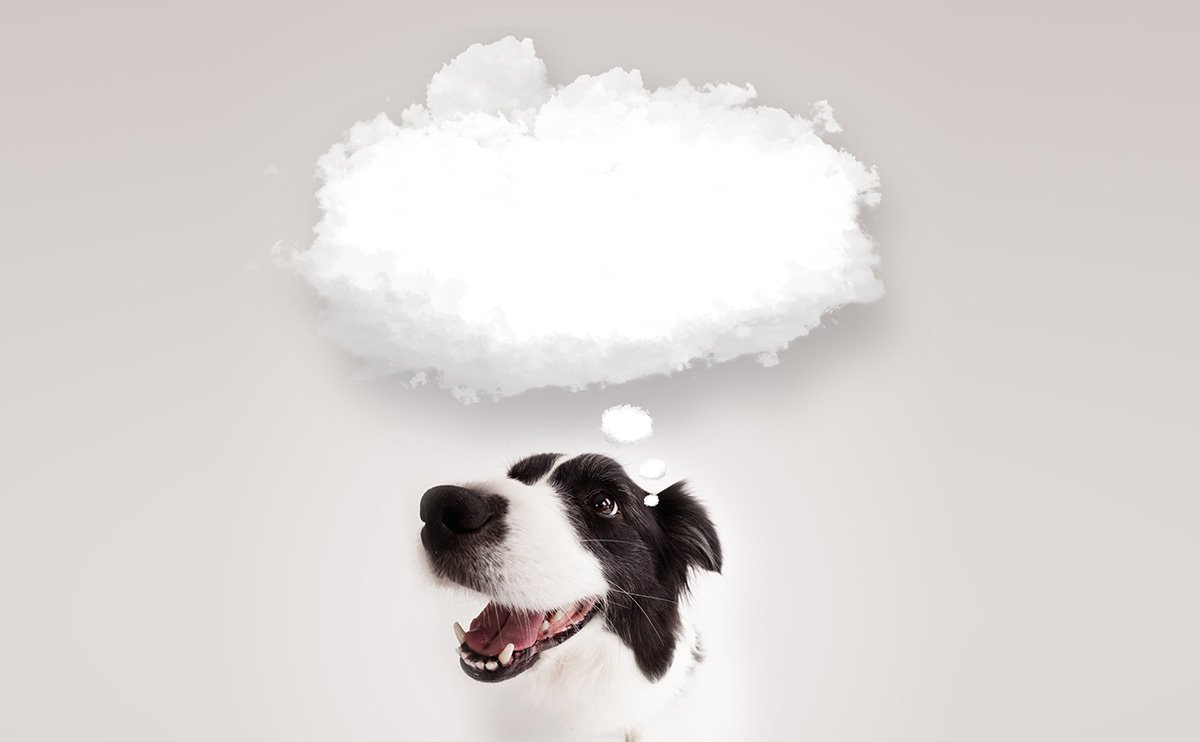Dog may be a man's best friend, but our loyalties (and language) toward canines are often split.

According to one theory, our ancestors adopted orphaned wolf pups, tamed them by bonding them into human families, and enlisted their help in hunting and guarding. According to the other version, starving wolves hung around human settlements, scavenging, begging, and stealing scraps, and gradually adapting to co-existence with people.
The ambivalence of these origin myths has been reinforced over the millennia, as dogs have been bred into hundreds of sizes, shapes, and behaviors, and enrolled into pretty much every available role in our lives and minds. It makes sense, then, that our language and idioms reflect our mixed feelings about man’s best friend.
Dogs have been bred into hundreds of sizes, shapes and behaviors, and enrolled into pretty much every available role in our lives and minds. It makes sense, then, that our language and idioms reflect our mixed feelings about man’s best friend.
In the Bible, dogs are generally treated as unclean scavengers. Deuteronomy 23:18 instructs us that “Thou shalt not bring the hire of a whore, or the price of a dog, into the house of the LORD thy God for any vow: for even both these are abomination unto the LORD thy God” — and Proverbs 26:11 notes that “As a dog returneth to his vomit, so a fool returneth to his folly.” Matthew 7:6 warns us “Give not that which is holy unto the dogs, neither cast ye your pearls before swine, lest they trample them under their feet, and turn again and rend you.” Revelation 22:15 puts dogs into even worse company: “For without are dogs, and sorcerers, and whoremongers, and murderers, and idolaters, and whosoever loveth and maketh a lie.” Isaiah 56:10 at least acknowledges the possibility of working watchdogs: “His watchmen are blind: they are all ignorant, they are all dumb dogs, they cannot bark; sleeping, lying down, loving to slumber.” And in chapter 7 of Judges, God instructs Gideon to choose a special band of warriors by bringing his army to water, and selecting only those “that lappeth of the water with his tongue, as a dog lappeth”.
In Greek mythology, dogs do somewhat better: the watchdog Kerberos guarded the entrance to the underworld. And it’s only Ulysses’ faithful hunting dog Argos who recognizes him when he returns to Ithaca after his 20-year Odyssey — their reunion is one of the most poignant episodes in ancient literature.
In Shakespeare, dog is usually a term of abuse — Shakespearian insults include “slave, soulless villain, dog”, “you false Danish dogs”, “misbeliever, cut-throat dog”, “dogs, cowards, dastards”, “you whoreson dog, you slave, you cur”, and many others. After the Rape of Lucrece, Tarquin “like a thievish dog creeps sadly thence”. And the witches in MacBeth brew up “eye of newt, and toe of frog, wool of bat, and tongue of dog”.
Over the past couple of centuries, poetical dogs have done much better. Walt Whitman evoked the manly hunting dog as companion, in “Leaves of Grass“: “Kindling a fire and broiling the fresh-killed game, / Soundly falling asleep on the gathered leaves, with my dog and gun by my side.” Tennyson pictured a herding dog as the agent of a merciful God: “the shepherd doth not kill / The sheep that wander from his flock, but sends / His careful dog to bring them to the fold.” And Elizabeth Barrett Browning wrote 120 lines “To Flush, My Dog”, in gratitude for his loyal presence by her sickbed: “This dog only, waited on, / Knowing that when light is gone / Love remains for shining.”
These hints at a gender-linked difference become explicit in a 1980s comic monologue by Gamble Rogers, a Florida folksinger who taught Jimmy Buffett:
[mf_blockquote layout=”left”]
You notice the way I said that word?
I said DAWG. That’s D A W G, dawg.
That’s man’s best friend I’m talkin’ about, lovable, loyal, and lop-eared. Bring you brandy when you’re lost in a snow drift, lay his grizzled snoot up on your knee and look up at you with those big limpid brown eyes, and say “I love you, I’m a dawg.”
And then there’re dogs. D O G S. Yip-yaps.
Weigh about a pound and a half apiece. Bejeweled, beribboned, befurred, pomaded, powdered, painted toenails, rhinestone collars, designed by God and nature to be trolled in the wake of a slow-movin’ boat in search of large trash fish.
[/mf_blockquote]
But both dawgs and dogs are loved. According to the Hedonometer, a tool that ranks the relative happiness of things, dogs (at 6.78 of a possible 9) outscores cats (at 6.64) — and both are way ahead of pigs (at 4.62). And puppy comes in at 7.58!
Still, the ancient ambivalence about dogs remains in the many negative English idioms and expressions employing the word. A horse or a stock that performs badly is a dog, even though someone who does well is a lucky dog. We’re encouraged to let sleeping dogs lie, and curse someone who avoids work as a lazy dog, but we complain about having to work like a dog, and being dog-tired. Someone may go to the dogs, and even die like a dog after living a dog’s life in a dog-eat-dog world. We can’t teach an old dog new tricks, even if every dog will have his day. Food that’s not fit for a dog may leave you sick as a dog. A really messed-up situation is a dog’s dinner. You may be as proud as a dog with two tails, but those who lie down with dogs will get up with fleas. And the dogs bark but the caravan moves on.
I could go on — but I need to see a man about a dog.